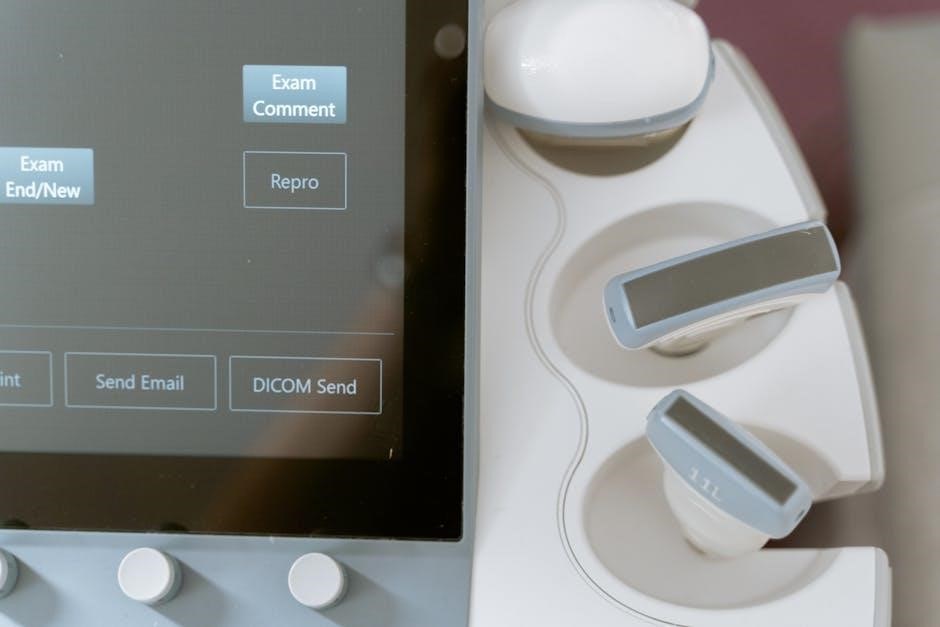Neuropsychological tests assess cognitive, emotional, and behavioral functions to understand brain-behavior relationships. They are essential for diagnosing disorders and monitoring treatment effectiveness in clinical and research settings.
Definition and Scope
Neuropsychological tests are standardized tools that assess cognitive, emotional, and behavioral functions to evaluate brain structure-function relationships. They are used to identify deficits, diagnose disorders, and monitor treatment progress. Their scope spans clinical, research, and educational settings, providing insights into mental processes and guiding interventions for various neurological and psychiatric conditions effectively and accurately.
Purpose and Importance
Neuropsychological tests are designed to evaluate cognitive, emotional, and behavioral functions, aiding in diagnosing neurological and psychiatric disorders. Their importance lies in guiding interventions, monitoring treatment progress, and understanding brain-behavior relationships. They are vital for clinical decision-making, research advancements, and improving patient outcomes by providing objective, reliable data on mental processes and behavioral patterns effectively and accurately.
Key Components
Neuropsychological tests involve standardized assessments of cognitive functions, such as memory, attention, executive skills, and language. They also evaluate emotional and behavioral responses. Key components include validated measures, normative data, and clear scoring criteria, ensuring reliable results. These tools help clinicians and researchers understand brain function, identify deficits, and guide interventions effectively and accurately in various settings.

What Are Neuropsychological Tests?
Neuropsychological tests are tools used to measure brain function, assessing cognitive abilities, emotional responses, and behavioral patterns. They aid in diagnosing neurological disorders and tracking recovery.
Types of Tests
Neuropsychological tests include cognitive assessments, executive function tests, memory and learning evaluations, and neuropsychological batteries. These tools measure specific brain functions, providing insights into cognitive strengths and deficits. They are designed to evaluate attention, problem-solving, and emotional regulation. Co-normed batteries ensure consistent results across tests, aiding in accurate diagnoses and treatment monitoring in clinical and research settings.
Applications in Clinical and Research Settings
Neuropsychological tests are widely used in clinical settings to diagnose and monitor neurological disorders, such as dementia or brain injuries. In research, they help study cognitive functions, behavioral changes, and treatment outcomes. Standardized tools enable consistent data collection, supporting both patient care and scientific advancements in understanding brain-behavior relationships and developing effective interventions.
Development and Standardization
Neuropsychological tests undergo rigorous development and standardization to ensure reliability and validity. They are typically created through extensive research, pilot testing, and validation studies. Standardization involves establishing consistent administration and scoring procedures, often using large, diverse samples to create normative data. This process ensures that tests accurately measure cognitive and behavioral functions across different populations and settings.
Applications of Neuropsychological Tests
Neuropsychological tests are widely used in clinical, research, and educational settings to assess cognitive functions, diagnose disorders, monitor progress, and guide interventions, aiding in understanding brain-behavior relationships and behavioral patterns.
Clinical Applications
Neuropsychological tests are crucial in clinical settings for assessing cognitive deficits, diagnosing brain disorders, and monitoring treatment progress. They help identify impairments in memory, attention, and executive functions, guiding rehabilitation strategies and improving patient outcomes. PDF versions of these tests enhance accessibility and standardization, ensuring reliable assessments in diverse clinical environments, aiding in precise diagnosis and effective intervention planning.
Research Applications
Neuropsychological tests in PDF format are invaluable for research, enabling standardized data collection and analysis. They facilitate cross-cultural studies, longitudinal assessments, and clinical trials, providing insights into cognitive functions and neurological conditions. Researchers utilize these tests to explore brain-behavior relationships, develop new assessment tools, and validate existing methodologies, contributing to advancements in neuropsychology and neuroscience, while ensuring reliability and accessibility across diverse study settings.
Educational and Occupational Assessments
Neuropsychological tests in PDF format are widely used in educational and occupational settings to identify cognitive strengths and deficits. They help assess learning disabilities, attention disorders, and executive functioning, guiding individualized education plans and workplace accommodations. These tools enable educators and employers to create supportive environments, ensuring individuals can thrive academically and professionally by addressing specific cognitive and behavioral needs effectively.
Types of Neuropsychological Tests
Neuropsychological tests evaluate cognitive, emotional, and behavioral functions, including memory, attention, executive skills, and language. They are standardized tools used in clinical and research settings to assess brain function and dysfunction across various domains, providing insights into individual differences and diagnostic needs. Their structured design ensures reliable and valid assessments of psychological processes and behaviors, aiding in accurate diagnosis and treatment planning for conditions affecting mental and cognitive health, while also informing educational and occupational strategies to support individuals with specific needs.
Cognitive Assessment Tests
Cognitive assessment tests evaluate mental processes like memory, attention, problem-solving, and language. They are standardized tools used to identify impairments or strengths in brain function. These tests help diagnose conditions such as dementia or ADHD and monitor recovery after brain injuries. They are essential in clinical and research settings for understanding cognitive health and guiding interventions.
Executive Function Tests
Executive function tests measure cognitive processes like planning, decision-making, and problem-solving. They assess abilities such as cognitive flexibility, working memory, and inhibitory control. Common tests include the Trail Making Test and Stroop Task. These tools are crucial for evaluating frontal lobe functioning and diagnosing conditions like ADHD or traumatic brain injuries, aiding in personalized treatment plans and interventions.
Memory and Learning Tests
Memory and learning tests evaluate verbal and non-verbal memory, recall, and encoding abilities. Tools like the Wechsler Memory Scale and California Verbal Learning Test assess short-term and long-term memory. These tests identify impairments in memory processes and guide interventions for conditions such as Alzheimer’s disease or traumatic brain injuries, enhancing diagnostic accuracy and treatment planning.
Neuropsychological Test Batteries
Neuropsychological test batteries, such as the Halstead-Reitan Battery, combine multiple assessments to evaluate diverse cognitive functions. They provide comprehensive profiles of strengths and deficits, aiding in diagnoses like brain injury or dementia. Standardized batteries ensure reliability, offering clinicians a robust framework for detailed patient evaluations and effective treatment planning across various neurological conditions.

Administration and Interpretation
Administration requires standardized procedures and trained professionals to ensure accuracy. Interpretation involves analyzing results against norms, considering individual differences, and integrating findings for clinical or research insights.
Administration Guidelines
Neuropsychological tests require standardized administration by trained professionals in a quiet, distraction-free environment. Tools like AAL and ACA ensure accuracy. Test-taker comfort and clear instructions are essential to minimize bias and ensure reliable results.
Scoring and Interpretation
Scoring involves comparing individual results to normative data, ensuring reliability and validity. Interpretation requires expertise to identify cognitive strengths and weaknesses, guiding clinical decisions. Standardized methods and co-normed batteries enhance accuracy, while professionals analyze patterns to inform diagnoses and treatment plans effectively.
Normative Data and Comparisons
Normative data provides standardized benchmarks for neuropsychological test performance, derived from large, diverse populations. Comparisons enable professionals to identify deviations from typical functioning, aiding in accurate diagnoses and monitoring progress. Cultural and demographic factors are considered to ensure data validity, making normative comparisons essential for reliable clinical decision-making and research applications.

Availability of Neuropsychological Tests in PDF Format
Neuropsychological tests in PDF format offer convenience, accessibility, and ease of use for clinicians and researchers, making them a popular choice for assessments and documentation.
Popular Tests Available in PDF
Popular neuropsychological tests like the Mini-Mental State Examination (MMSE), Montreal Cognitive Assessment (MoCA), and Wechsler Adult Intelligence Scale (WAIS) are widely available in PDF format. These tests are commonly used for cognitive and memory assessments, offering structured questionnaires and scoring guidelines. Their PDF availability enhances accessibility for clinicians and researchers, facilitating easy administration and documentation in various settings.
Advantages of PDF Format
The PDF format offers consistent layout, portability, and accessibility across devices. It ensures test integrity by maintaining standardized formatting and security through password protection. PDFs are easily shareable and compatible with most systems, making them ideal for clinical and research settings. They also support electronic filling, enhancing administration efficiency and data collection accuracy while preserving test reliability and confidentiality.
Considerations for Using PDF Tests
Using PDF neuropsychological tests requires secure systems to prevent unauthorized access. Ensure compatibility with all devices and verify test integrity to maintain reliability. Proper training for administrators is essential for accurate test delivery and interpretation. Additionally, consider data privacy regulations and ensure compliance with ethical guidelines to safeguard sensitive patient information and maintain confidentiality throughout the process.

Clinical vs. Research Use of Neuropsychological Tests
Neuropsychological tests are used clinically for diagnosis and treatment, while in research, they provide insights into cognitive functions and neurological conditions, aiding in scientific advancements and understanding brain behavior.
Clinical Use
Neuropsychological tests are essential in clinical settings for diagnosing brain injuries, dementia, ADHD, and learning disabilities. They assess cognitive functions, monitor treatment progress, and guide rehabilitation strategies, providing actionable insights to improve patient outcomes and tailor interventions to individual needs, ensuring effective care and management of neurological and psychiatric conditions.
Research Use
Neuropsychological tests in research settings help investigate brain function, cognition, and behavior. They enable longitudinal studies, comparing pre- and post-intervention outcomes, and aid in understanding neurological disorders. Researchers use standardized tests to collect data, identifying patterns and correlations, and advancing theoretical knowledge in neuropsychology, ultimately contributing to evidence-based practices and innovations in the field of cognitive science.
Ethical Considerations
Ethical considerations in neuropsychological testing involve ensuring informed consent, confidentiality, and cultural sensitivity. Tests must be administered by trained professionals to avoid biases. Interpretation should be accurate and free from misrepresentation. Researchers and clinicians must adhere to ethical guidelines to protect participants’ rights and maintain the integrity of the assessment process and outcomes.
Technological Integration in Neuropsychological Testing
Technological advancements have transformed neuropsychological testing through digital platforms, enabling remote assessments and AI-driven data analysis. This integration enhances accessibility, efficiency, and accuracy in evaluating cognitive and behavioral functions across diverse populations.
Digital Platforms for Test Administration
Digital platforms have revolutionized neuropsychological test administration by offering remote and accessible solutions. They enable standardized assessment procedures, real-time data collection, and automated scoring, ensuring consistency and reducing human error. These platforms also support test adaptation for diverse populations, enhancing the accuracy of cognitive and behavioral evaluations in clinical and research contexts efficiently.
Artificial Intelligence in Test Interpretation
Artificial intelligence enhances neuropsychological test interpretation by automating scoring, identifying patterns, and providing data-driven insights. AI algorithms analyze complex datasets, improving accuracy and reducing interpretation time. Machine learning models adapt to individual profiles, offering personalized assessments and facilitating early detection of cognitive impairments, making AI a valuable tool in modern neuropsychological evaluation and research practices.
Future Trends in Digital Neuropsychological Testing
Future trends include remote test administration, AI-driven adaptive testing, and gamification for engagement. Digital platforms will enable real-time data analysis, personalized feedback, and integration with wearable devices. These advancements aim to enhance accessibility, accuracy, and scalability, making neuropsychological assessments more efficient and widely available for diverse populations globally.
Challenges and Limitations
Neuropsychological tests face challenges like cultural bias, limited accessibility, and reliance on subjective interpretation. Ensuring standardization and addressing diverse linguistic and cognitive needs remain significant hurdles in their application.
Common Challenges
Neuropsychological tests often face issues like cultural and linguistic biases, accessibility limitations, and lack of standardization. Environmental factors, examiner variability, and subjective interpretation can impact results. Additionally, ensuring test reliability across diverse populations and addressing technological constraints remain persistent challenges, requiring ongoing refinement and adaptation to meet individual needs effectively.
Limits of Test Reliability and Validity
Neuropsychological tests may have limited reliability due to factors like test-retest consistency and examiner variability. Validity can be compromised by cultural biases, situational influences, and the subjective nature of self-reported data. Additionally, test designs may not fully capture complex cognitive constructs, highlighting the need for continuous refinement to enhance accuracy and applicability across diverse populations.
Cultural and Linguistic Considerations
Cultural and linguistic factors significantly impact neuropsychological test results, requiring careful consideration. The European Consortium on Cross-Cultural Neuropsychology emphasizes adapting tests for diverse populations. Challenges include translation accuracy, cultural biases, and ensuring normative data reflects varied backgrounds. Using culturally sensitive norms and bilingual assessors helps ensure fair and accurate assessments across different populations and languages.
Neuropsychological tests are vital tools for understanding brain function, with PDF formats enhancing accessibility. Cultural and linguistic adaptations ensure accuracy, while technological advancements promise future improvements in assessment practices.
Neuropsychological tests assess brain function, cognition, and behavior, aiding in diagnosis and treatment monitoring. PDF formats enhance accessibility for clinical and research use. Cultural adaptations ensure reliability across diverse populations, while technological advancements improve test administration and interpretation, balancing practicality with scientific rigor in understanding brain-behavior relationships.
Final Thoughts
Neuropsychological tests in PDF format offer unparalleled accessibility and practicality for clinicians and researchers. Their standardized nature ensures reliability across diverse applications, from clinical diagnoses to academic studies. As technology advances, these tools will continue to evolve, providing deeper insights into brain function and behavior, making them indispensable in modern neuropsychological practice and research.
